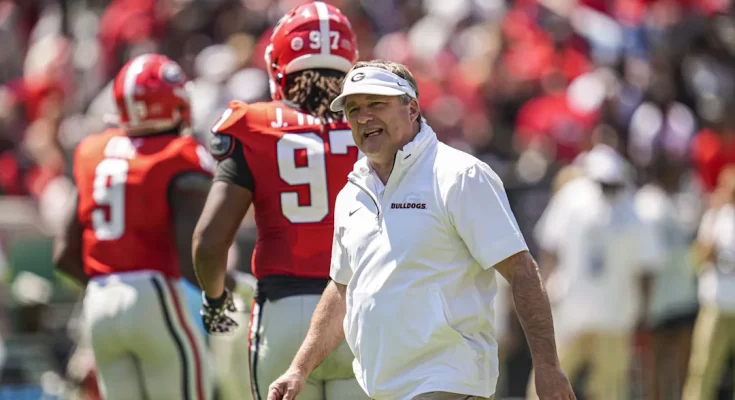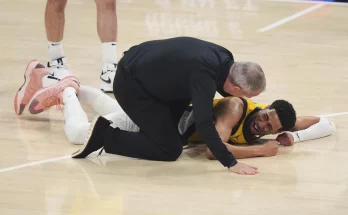In the ever-unfolding theater of college football, satire often proves to be the sharpest lens through which fans can both laugh and lament the chaotic state of the sport. Enter SEC Shorts, the beloved sketch comedy series that has built a reputation for delivering biting commentary with a Southern charm and absurdist wit that speaks directly to the heart of SEC football. Their latest piece—centered on the Georgia Bulldogs—doesn’t just poke fun at the two-time national champions; it uses them as a mirror to reflect just how wild, unpredictable, and, frankly, broken the current college football ecosystem has become.
To understand the impact of SEC Shorts’ latest video, it’s important to recognize their long-standing influence within the college football community. Their short skits, usually released at the beginning or end of each week during the season, have developed a cult-like following. The humor typically hinges on caricatured SEC stereotypes, absurd logic, and just enough truth to make every fan squirm. When they decided to place Georgia—the crown jewel of consistency in recent years—at the center of their comedic takedown, it wasn’t just for laughs. It was a commentary on the absurd contrast between the Bulldogs’ dominance and the surrounding instability in college football.
The sketch opens with Georgia depicted as the “responsible adult” in a house full of screaming, rule-breaking, narcissistic children—all meant to symbolize the other programs, conferences, and governing bodies currently defining college football’s messy state. With clever writing and visual gags, the Bulldogs are shown calmly preparing for another championship run while chaos erupts around them: a USC character sobs over another defensive collapse, Florida State whines about being left out of the Playoff despite an undefeated record, and Texas and Oklahoma try on SEC-branded clothes like kids sneaking into their older sibling’s closet.
What makes the piece hit home is how Georgia is portrayed as exasperated but not surprised. This characterization subtly nods to how Kirby Smart’s program has managed to remain above the fray while college football suffers through existential crises—whether it’s the death of traditional rivalries due to realignment, NIL and transfer portal drama, or the ever-expanding College Football Playoff. In contrast to these volatile elements, Georgia is seen as the steady hand—ironically, the straight man in the joke.
This portrayal is both funny and revealing. In many ways, Georgia has become the face of order in a sport that has increasingly become disorderly. Over the past few years, they’ve built their success on continuity: coaching stability, elite recruiting, player development, and a culture of toughness that mirrors the dynasties of old. While others chase headlines, Georgia racks up wins. While other schools get caught up in NIL bidding wars or panic-fire coaches after one bad season, the Bulldogs quietly reload and keep moving forward.
That very steadiness becomes the centerpiece of the satire. Georgia is not mocked for failing but for being the only thing that still makes sense in a sport that increasingly doesn’t. In that way, SEC Shorts flips the usual comedic trope. Rather than roasting the underperformers, they shift the spotlight to the outlier—Georgia—and use it to mock the absurdity of everyone else. It’s an inversion of expectations, and it’s brilliantly effective.
The timing of the sketch couldn’t be better. With conference realignment reaching levels of absurdity—Cal and Stanford joining the ACC, Oregon and Washington bolting to the Big Ten, and the Pac-12 essentially disintegrating—college football fans everywhere are feeling disoriented. The sport that once prided itself on pageantry, tradition, and regional pride now feels like a corporate free-for-all. And that’s exactly the feeling SEC Shorts captures with their latest offering.
In one scene, Georgia attempts to host a “College Football Family Dinner,” only to be interrupted by other characters arguing over revenue sharing, complaining about travel schedules, and trying to trademark bowl games for themselves. It’s pure chaos—and also a not-so-subtle jab at the increasingly business-first mentality overtaking the sport. What used to be a fall Saturday staple has become a year-round soap opera with more plot twists than a daytime drama.
SEC Shorts doesn’t shy away from calling this out, and they use Georgia’s bemused reaction to drive the point home. There’s a line delivered by the Georgia character—something to the effect of, “Maybe we’re the problem for still caring about the actual games”—that lands with real emotional weight despite the comedic context. That moment crystallizes what many traditional college football fans are feeling. In a landscape shifting beneath their feet, those who cling to the old ways—the ones who just want good football, rivalry games, and Saturdays filled with meaning—are beginning to feel like the odd ones out.
That’s what makes this particular sketch so powerful. It isn’t just funny—it’s cathartic. It gives voice to the frustration, confusion, and even sadness that many fans feel about where the sport is headed. And by placing Georgia, a program currently at the height of its powers, in the role of the straight man, SEC Shorts invites everyone—whether you root for Alabama, Texas, Michigan, or Oregon—to see how absurd it has all become.
This sketch also serves as a subtle reminder of how far Georgia has come. Not too long ago, they were on the receiving end of jokes—perennial underachievers who couldn’t get over the hump. Now, they’re the gold standard. To have gone from the punchline to the one making sense in a sea of madness is perhaps the greatest testament to the program’s growth.
Even more impressively, the sketch doesn’t rely on cheap shots. It doesn’t punch down. Instead, it invites fans to laugh at the absurdity of the current system without turning mean-spirited. The humor comes from exaggeration, yes, but also from accuracy. Anyone who follows college football closely can recognize the characters and tropes being skewered. From Florida State’s righteous indignation to the SEC’s smug confidence and the Big Ten’s desperate expansion, every element is exaggerated—but only slightly.
And that’s why SEC Shorts continues to resonate. Their humor is rooted in a deep love and understanding of college football. They’re not outsiders mocking a sport they don’t understand—they’re insiders, true fans, using comedy to say what so many others are thinking but can’t articulate. They provide a release valve for a community that sometimes takes itself too seriously and other times feels completely unmoored.
In a sport undergoing seismic change, sketches like this one become more than entertainment. They’re time capsules, snapshots of how the college football community is reacting to an evolving landscape. And by choosing to use Georgia—the current king of the hill—as the voice of reason, SEC Shorts isn’t just making a joke. They’re issuing a challenge. They’re asking: if this is what normal looks like now, what does the future hold?
Will Georgia remain the lone bastion of football sanity in a world increasingly driven by television contracts and transfer market chaos? Or will even they be pulled into the maelstrom, forced to adapt or be left behind?
Whatever the answer, one thing is clear: as long as college football continues to evolve—or devolve—SEC Shorts will be there, camera rolling, ready to make us laugh through the madness. And if Georgia is now the sport’s comedic anchor, that might be the most unexpected development of all.
In the end, the sketch works because it captures something real: the tension between tradition and change, stability and chaos, reason and absurdity. It’s a microcosm of the current college football moment, delivered in under five minutes of well-written satire. And while fans may not agree on much these days—conference loyalty, playoff expansion, or even who the real “DBU” is—they can all agree on one thing: sometimes, the best way to deal with the madness is to laugh. And for that, SEC Shorts, and Georgia, have given us all a reason to smile.



